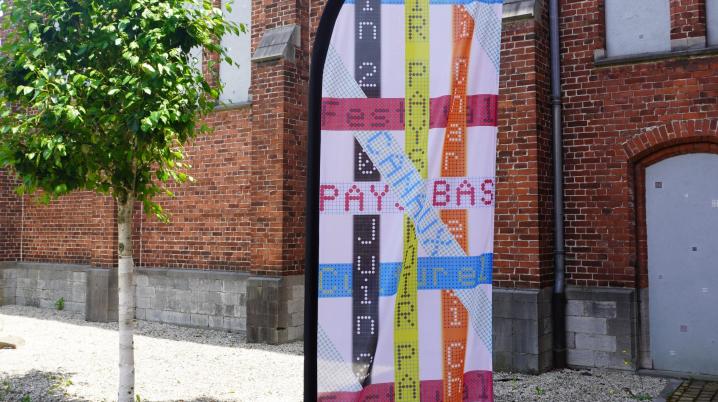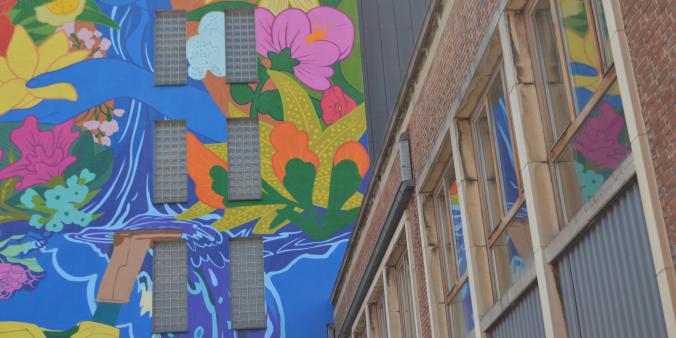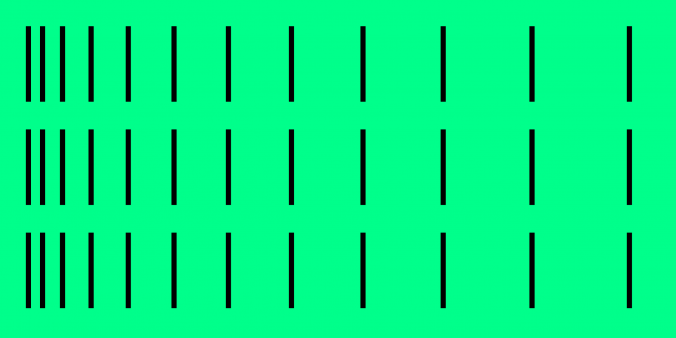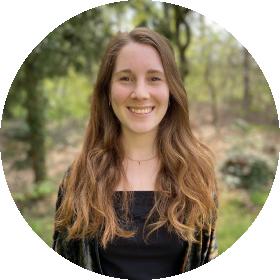
The month of June 2023 was dedicated to celebrating the cultural relations between Wallonia and the Netherlands. Many of Charleroi's cultural organizations opened their doors to showcase artistic works from Dutch-based makers during the multidisciplinary cultural festival Canaux, Pays-Bas x Pays Noir, initiated and organized by the Embassy of the Kingdom of the Netherlands in Belgium and the city of Charleroi. Canaux was organized parallel to a state visit by the Dutch royal couple King Willem-Alexander and Queen Máxima - a special occasion, which took place for the last time in 2006. Besides visiting Brussels and Antwerp, the Dutch and Belgian royal couples also popped by Charleroi, the largest city of the French-speaking region Wallonia.
Charleroi back then and today
And the workers are tired, in Charleroi. And the streets are grey in Charleroi. But the days are good, in Charleroi, sings Belgium musician Tom Pintens in 2009. To understand the city's image, we need to look back at its history. Charleroi is centred in the region Pays Noir (in French 'black country'). During the Industrial Revolution in the 19th century, Charleroi became one of the centres for glass, steel and coal manufacturing, hence the name Pays Noir. The coal mining industry shaped the city's vibe and looks enormously. After Charleroi had lost its industrial power in the 1970s, it underwent high unemployment and poverty rates. Charleroi's past has left marks until this day. Didier Gosset, director at cultural space and concert venue Le Vecteur, grew up in Charleroi. “To me the city is a mixture of the reputation of the industrial and economic centre it used to be, and the roughness that citizens radiate nowadays. I hope that people realise that both components are needed to complete 'the package'.” Looking behind the facades helps to understand and appreciate Charleroi.
Today, cultural professionals contribute to improving Charleroi's image and cultural offers. While more and more artistic unfolding takes place in the city, there is also an increasing interest in international collaborations with the Netherlands. Within this context, the Netherlands Embassy in Belgium initiated the multidisciplinary cultural festival Canaux, which zooms in on contemporary ways of how to connect with each other in a world that is linked through digital platforms and social media. The result: bringing together Dutch makers and Charleroi's cultural field. Among many other Walloon-Dutch collaborations, comic artists Dido Drachman and Christian Durieux created the colourful mural Rain Flowers on Charleroi's school Institut Saint-André. ''I think Charleroi is beautiful city that could definitely use a little bit of ‘fleur’,'' says Drachman.
A fruitful visitors programme
In preparation for Canaux, the cultural department of the Netherlands Embassy and DutchCulture organised a visitors programme in the Netherlands for four cultural experts: Christian Durieux, Didier Gosset, Fabienne Aucant (Charleroi Danse, a choreography centre) and Matthieu Bakolas (Quai10, an arthouse cinema and game centre). The visitors were introduced to the Dutch cultural sector and professionals, paying visits to, among others, Framer Framed, WORM, Lab111, EYE, Ado Ato Pictures, Tolhuistuin, Dutch Game Garden, ISH Dance Collective, Roodkapje, de Dansateliers, Codarts, and meeting many Dutch cartoonists, such as Dido Drachman. Bakolas: “It was a fantastic opportunity to be invited to the Netherlands and to meet all these incredible people and cultural organisations.” It was also a fruitful visit, as the programming at Quai10 was filled with the connections Bakolas made during his trip in the Netherlands. The inspiring encounters led to several cross-border collaborations: Quai10 exhibited works of Monobanda and LI-MA at their venue, Charleroi Danse programmed Eros, a performance by DOX, while Christian Durieux collaborated with Dido Drachman to create the above-mentioned mural.
Why the Netherlands?
Cultural organisations in Wallonia tend to collaborate with France rather than the Netherlands due to the region's proximity to France and the fact they share the French language. Nevertheless, the cultural field in Wallonia is interested in the opportunities awaiting in the Netherlands. Bakolas states that it is worth taking a glance at the north: ''I was curious to learn more about the cultural ecosystem in the Netherlands, especially diving into the field of virtual reality and film.'' Similarly, Selin Eskin, Business Developer and Marketing Manager at Musée de la Photographie Charleroi, finds the cultural scene in the Netherlands interesting. ”The sector experiments and tests more than other countries,” she says. This offers many opportunities for makers. Gosset joined our visitors programme without specific expectations, but looking beyond borders can yield surprising outcomes. When visiting Framer Framed and its bookstore, he found some of their books interesting for a future pop-up bookstore that Le Vecteur is setting up. ''We have a focus on micro-editions and self-published books, and Framer Framed books fit many of those angles,” mentions Gosset.
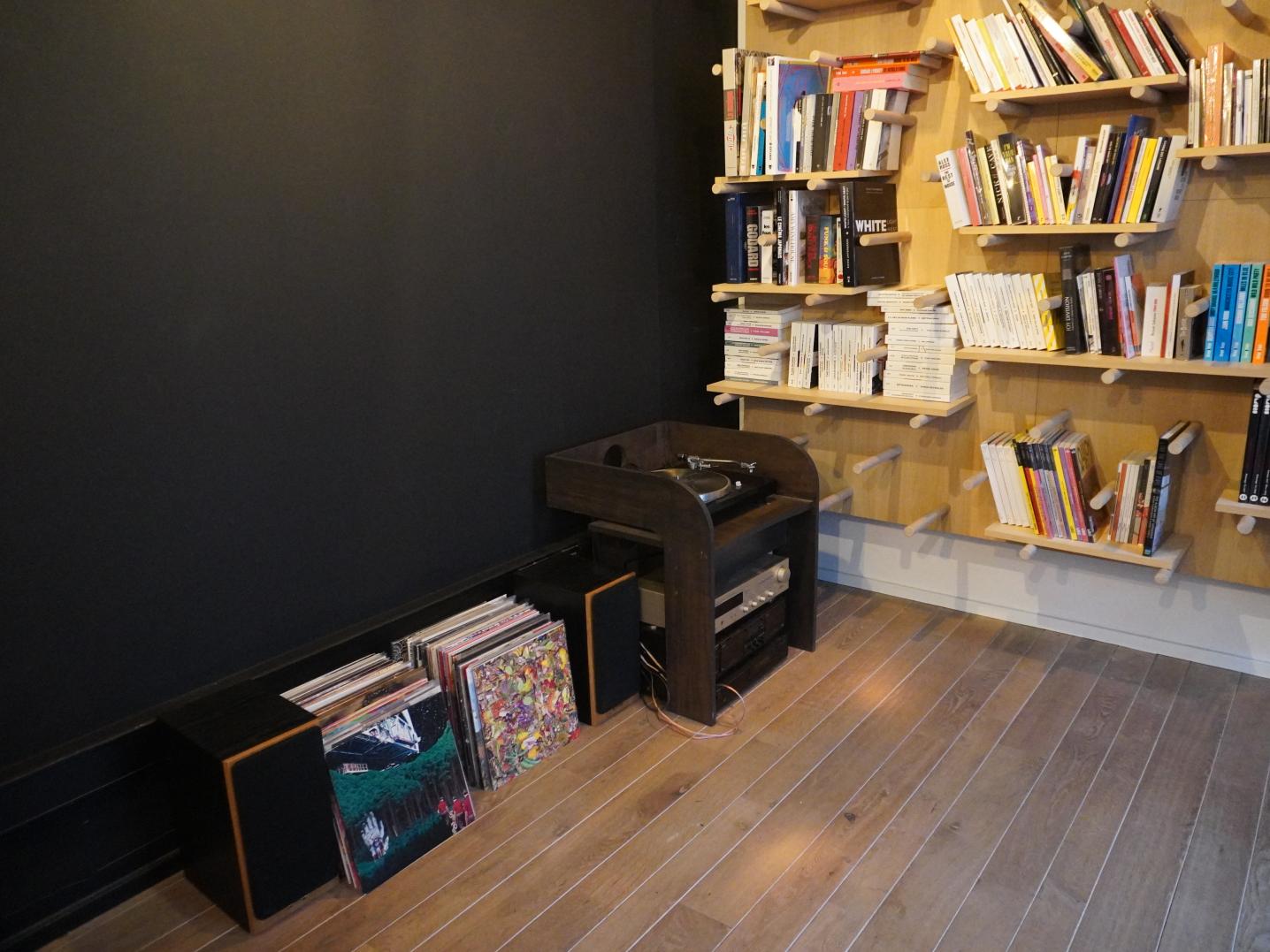
Bringing ideas and new angles to local audiences is one of the main reasons to carry out international collaborations. Bakolas: ”It’s very important to show international works in Charleroi and to introduce citizens to innovative art works.” He was deeply inspired by Monobanda, an Utrecht-based studio creating (Virtual Reality) games, art installations and mental healthcare interventions. ''I have a crush on Monobanda. I know a bit about Virtual and Augmented Reality, but I could never imagine that people were able to make stuff like that. All of their projects are amazing, because they are art, games and also always socially relevant. For instance, DEEP, a meditative and psychoactive VR game programmed at Quai10, is also meant for relaxation, it can help people in hospitals to stay calm.”
Louise Vervloesem, tour guide at Musée de la Photographie, talked vividly about the exhibition Garage Stills & Fringe Nature by Dutch photographer Jacquie Maria Wessels, complimenting the artists on the way she creates links between the human in the environment and vice versa. ''Wessels plays with light, colour, shape and the objects in her photographs," she says.
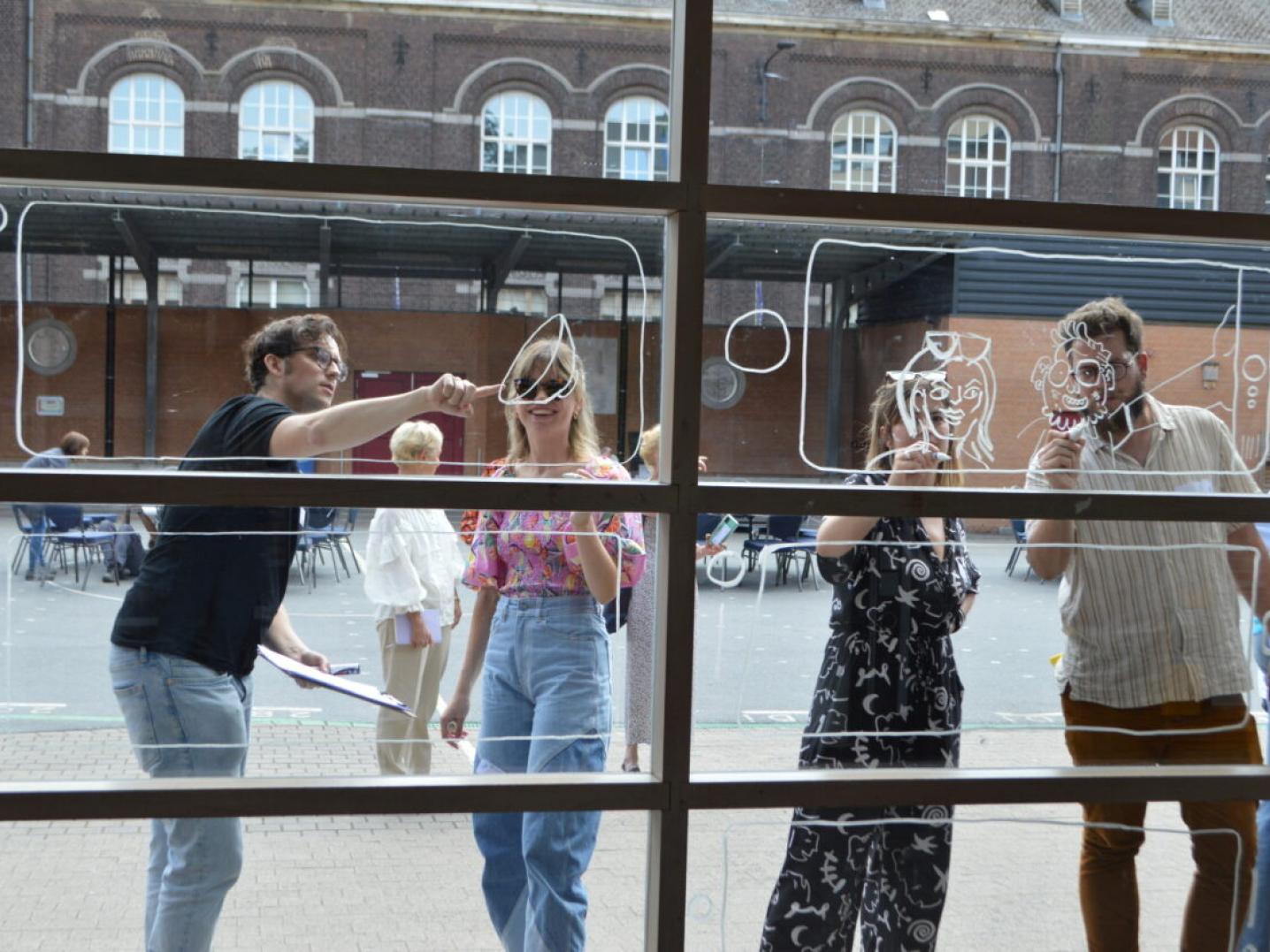
Mutual inspiration
Not only the audience benefits from seeing international works. Artists deeply inspire and complement each other when collaborating. While designing Rain Flowers together, Christian Durieux and Dido Drachman both agreed that differences and similarities in their way of working created a perfect balance. What they liked most about their collaboration was playing back and forth their designs.
Crossing borders can broaden the horizon of audiences, organisations and artists and show what is possible in the cultural field. We hope that the visitors programme and cultural festival was only the beginning of an ongoing exchange and collaboration between Wallonia and the Netherlands. There are many opportunities lurking behind the corners of Charleroi and other cities in Wallonia. We invite cultural organisations in the Netherlands and Dutch-based artists to look beyond the borders of the Netherlands and Flanders, and explore Wallonia even further.
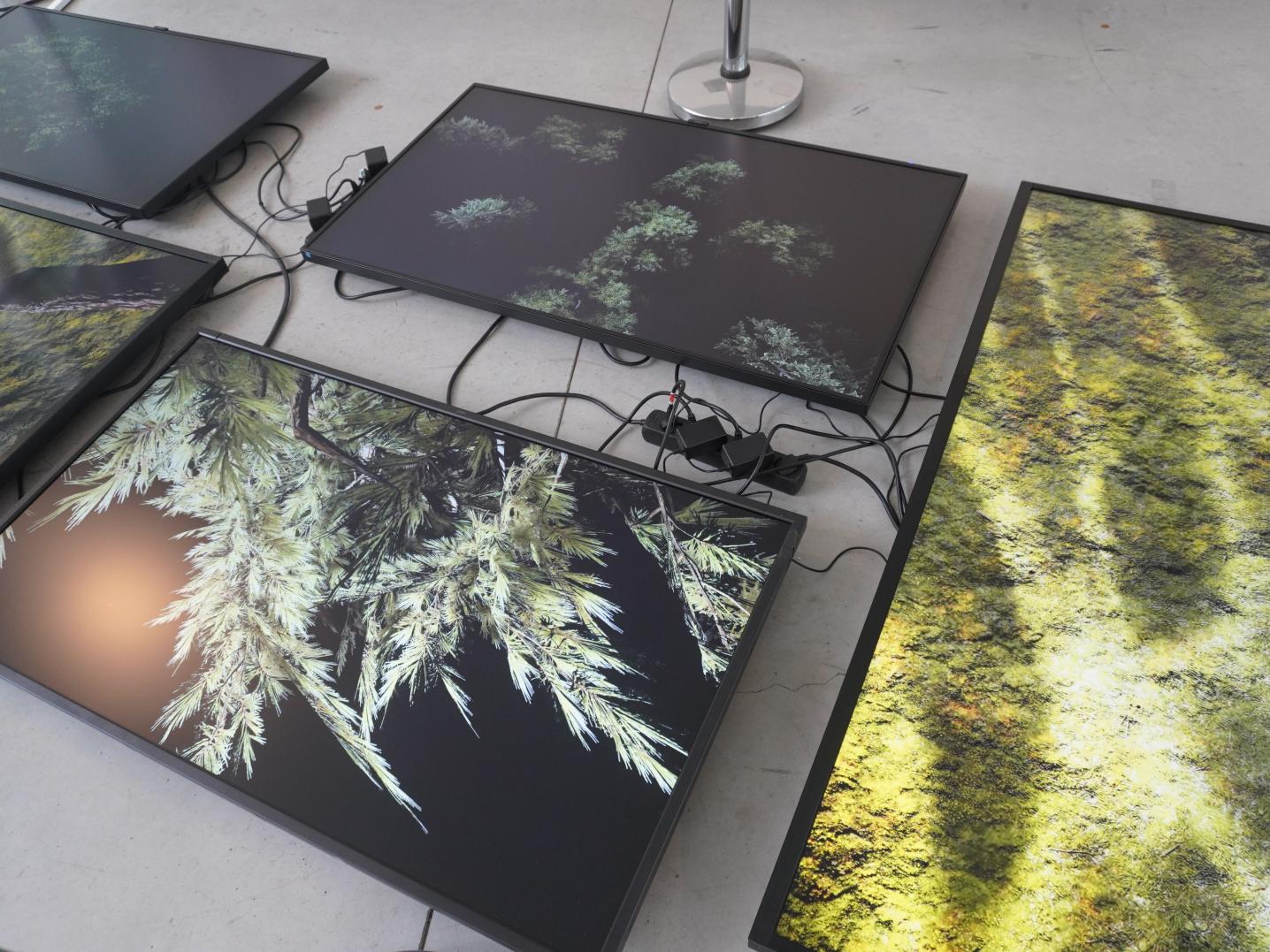
Are you a cultural professional interested in an international collaboration with Belgium? Feel free to contact our Belgium Advisor Astrid Mörk or check our Belgium country page.
